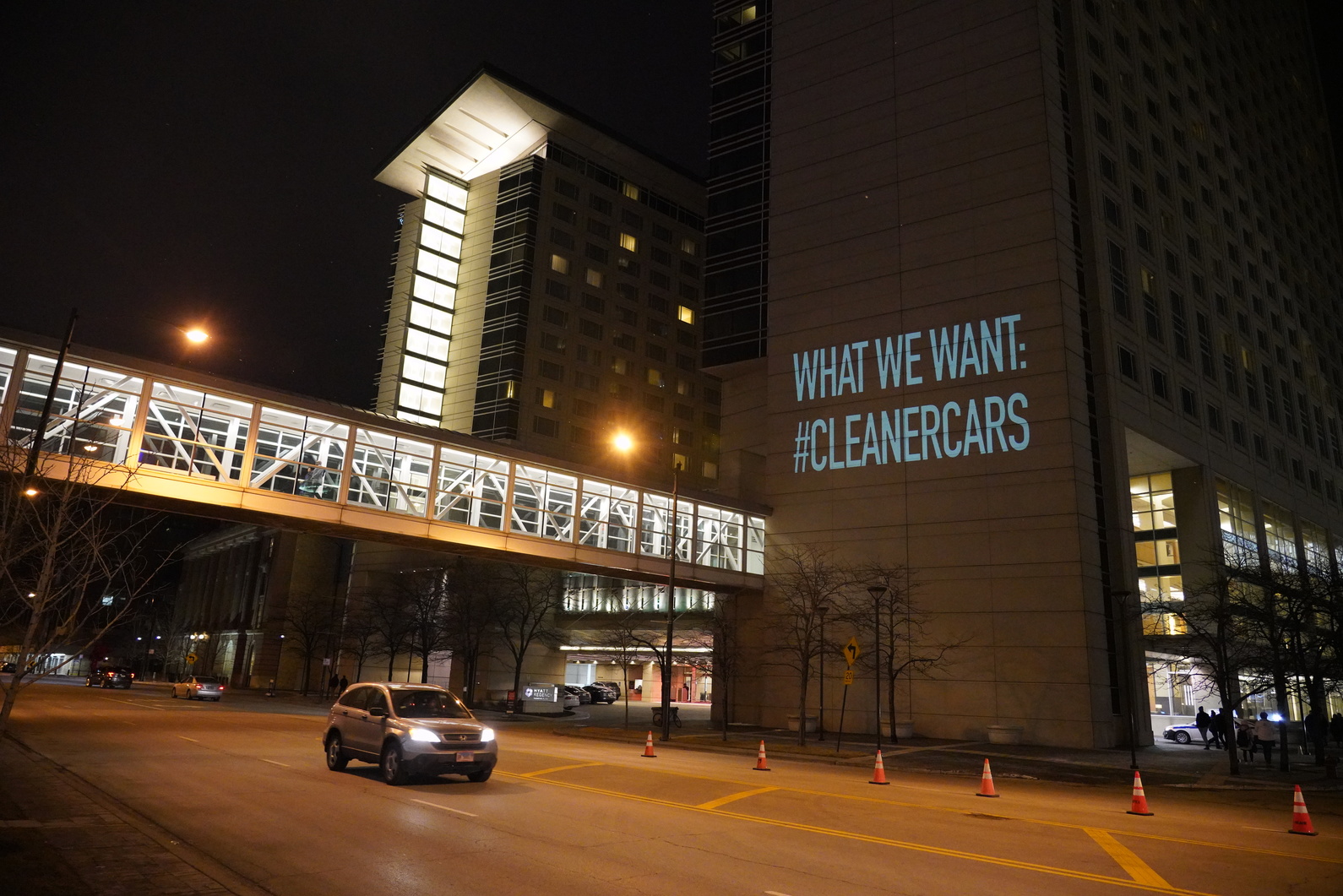In most advocacy campaigns, it’s important to pause to recognize good proposals and then continue to push to make them stronger.
This applies to three new announcements the Biden administration made last week on clean transportation, which represent important steps in electrifying vehicles nationwide and yet are inadequate to get us to where we need to be when it comes to the transportation sector.
The latest report from the Intergovernmental Panel on Climate Change rings the climate crisis alarm once again: The damage done by burning fossil fuels will only worsen unless we rapidly slash climate-disrupting emissions.
Here’s our break-down of the three announcements and what needs to happen next.
The “Clean Car Standards” Must Be Stronger.
We have spent years defending the clean car standards - and for good reason: They are our single most influential policy to slash climate pollution.
Here’s a brief overview of the saga of the standards: In 2012, the Obama administration made history by finalizing strong vehicle pollution standards for new cars and light trucks through 2025. When the Trump administration took office in 2017, one of its biggest attacks on climate was severely weakening these standards. It also revoked a long-standing California waiver under the Clean Air Act that allowed the state, as well as 14 other states and the District of Columbia, to be even more ambitious in reducing vehicle pollution and cleaning up the air.
The Sierra Club Clean Transportation for All team, along with Sierra Club chapters across the country and in coalition with many groups, defended the clean car standards against Trump’s attacks in court, during public comment periods, and in the media. We cut no slack for automakers who spent years lobbying to weaken these important standards.
Array
Many automakers, like General Motors and Toyota, sided with Trump when there was a divide between supporting his administration’s illegal attacks or joining a compromise deal with California. But it is worth a reminder that even those manufacturers that commited to standards stronger than Trump’s proposal, like Ford, also initially lobbied Trump for weaker standards in the first place.
Now, the Biden administration has an opportunity to make up for lost time and shift the nation to electric cars, trucks, and buses. Strong clean car standards are essentially the policy keys needed to accelerate EV adoption and help the US reach our air quality and climate goals this decade! The transition to electric vehicles will reduce harmful pollution that disproportionately burdens low-income communities and communities of color. We must push to ensure that everyone who chooses to drive can consider a cleaner car, and that will take significant investments and unwavering commitments from automakers.
Unfortunately, the auto industry continued its antics this year and has heavily influenced this proposed rule to weaken its timeliness and effectiveness.
But it’s just that - a proposal. The Biden administration must hear from you, your family and friends on why slashing transportation pollution matters personally today.
Public comment on this proposed rule is open, making now a moment of critical leverage for what is the nation's strongest tool for slashing climate-disrupting emissions.
It’s time to urge Biden’s EPA to finalize a rule that offers no loopholes for automakers and achieves the ambition we need to tackle the climate crisis. There’s so many reasons this fight is personal, so make sure to add a personal comment when you submit your letter.
The Plan to Electrify Trucks and Buses, a Major Environmental Justice Issue.
The Biden administration said it will craft greenhouse gas-reduction standards and fuel economy requirements for medium-duty and heavy-duty trucks.
Medium and heavy-duty trucks spew toxic diesel fumes and create sacrifice zones of communities located closest to major roadways. Regulating truck manufacturers is a major environmental justice issue and will benefit the communities - overwhelmingly communities of color and low-income communities - that suffer from diesel-polluting truck traffic.
Frontline communities have been doing this work for years. In California, this advocacy resulted in the first regulation to electrify trucks in the world. Any proposed federal rule must put the concerns of the most affected communities front and center.
The Goal to Achieve 50% Electric Vehicle Sales by 2030.
As the header notes, this target is a goal and we know goals alone won’t get us to the real-world reductions in emissions and air pollution our communities need. Plus, this goal isn’t high enough for the long-term change we need (100 percent electric vehicle sales by 2035). What will get us there is policy. Strong standards are fundamental for the shift to 100 percent electric vehicles. Sign the petition to the EPA!
For context, the Sierra Club and other organizations have been calling for 60 percent EV sales by 2030 in order to hit the 100 percent by 2035 mark.
From extreme heat, to stronger storms, to prolonged drought, we’re already witnessing the climate crisis directly affect our lives on a daily basis, exacerbating the inequalities that harm our communities.
Transportation pollution is a huge contributor to climate change, and strong and enforceable standards are key to getting us on the urgent path we need to be on.
